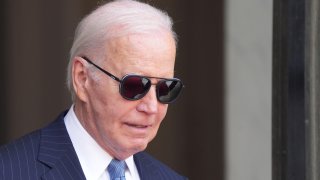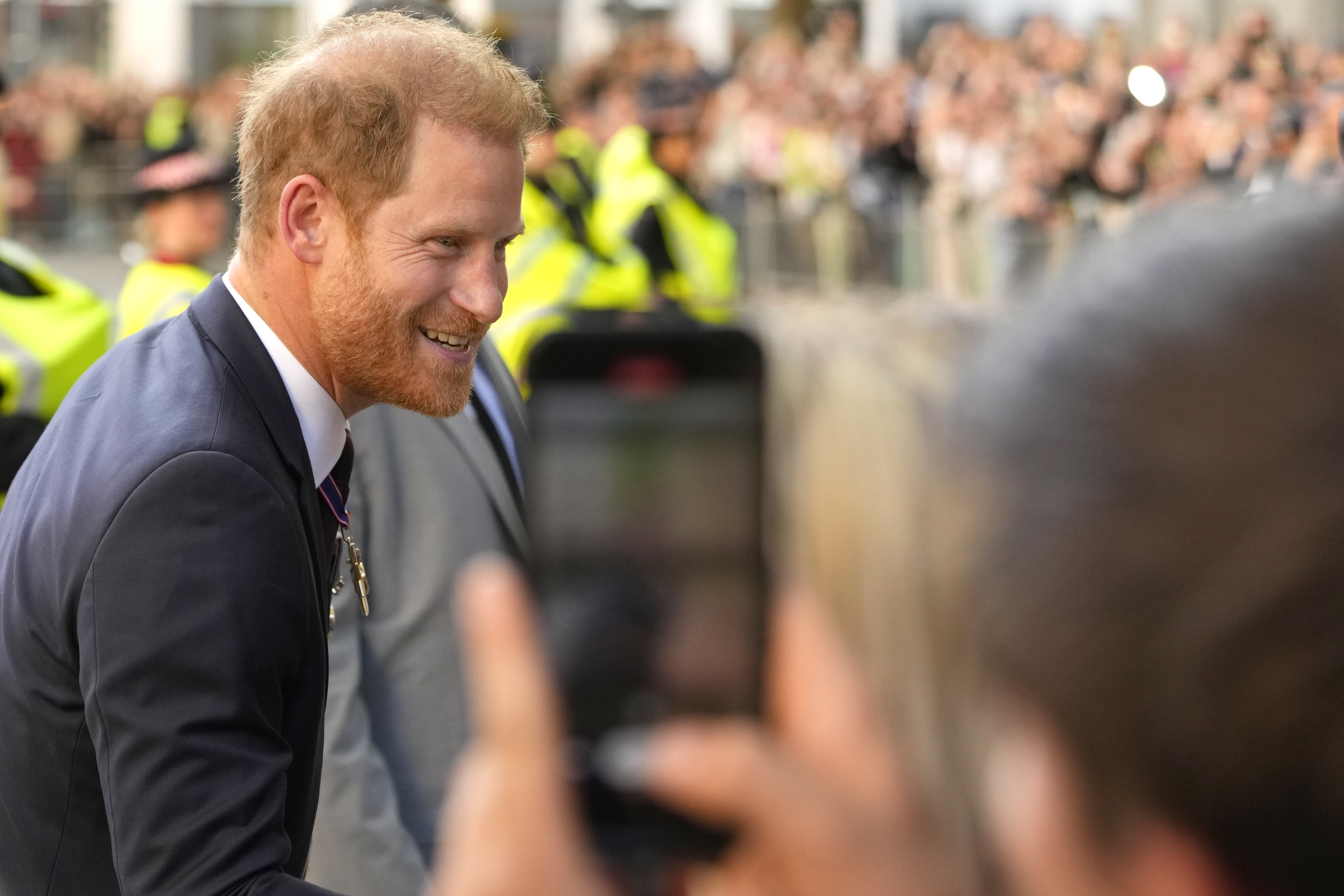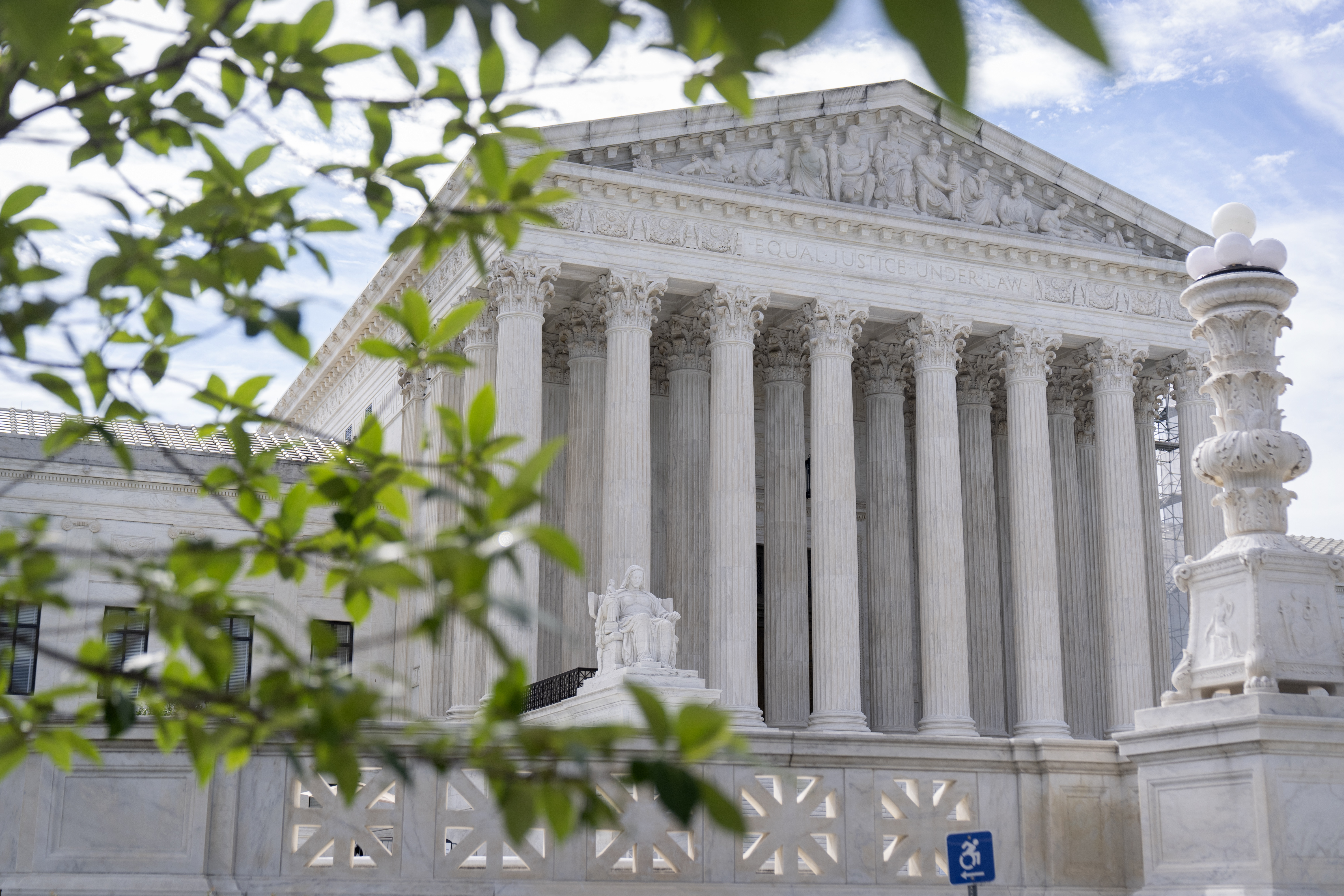
Amid signs that Americans are tiring of sending weapons to Ukraine after two years of war, President Joe Biden this week will huddle with other world leaders in search of new ways to get aid to the country as it struggles to fend off Russia’s invasion.
Biden will participate in a three-day meeting in Apulia, Italy, of the Group of Seven, or G7, the organization formed by the world's largest industrialized nations, where a major topic will be tapping $300 billion worth of frozen Russian assets to strengthen Ukraine on the battlefield, according to the White House.
Biden and his counterparts largely agree about the merits of seizing Russian assets to help underwrite Ukraine’s effort, though there is friction about how best to go about it, a person familiar with U.S. planning for the summit said.
The Biden administration had wanted to use both principal and interest from Russia’s assets to help pay for the war, while European nations had favored using only the interest, the person said. With Ukraine urgently needing more arms, the Biden administration is prepared to compromise and embrace the path European leaders prefer, the source added.
One option under consideration is for the G7 nations — the others are France, Canada, Japan, the United Kingdom, Italy and Germany — to provide Ukraine with about $50 billion up front and then recoup the money in interest income over the next 10 years.
Biden suggested that he made headway in reaching a deal during his trip to France last week commemorating the 80th anniversary of D-Day.
Talking with reporters at a World War I cemetery outside Paris, he was asked whether he had spoken to French President Emmanuel Macron about dipping into frozen Russian assets and whether the two had reached an agreement.
U.S. & World
“Yes and yes,” Biden said, without providing more details.
Biden spent much of his five-day trip to France making the case for bolstering Ukraine. Just as the U.S. and its allies collaborated in defeating the Nazis in World II, democratic nations must be resolute in helping defend Ukraine and demonstrate to Russian President Vladimir Putin that he can’t expand his reign by force, Biden argued.
Get a weekly recap of the latest San Francisco Bay Area housing news. Sign up for NBC Bay Area’s Housing Deconstructed newsletter.
If he vanquishes Ukraine, an emboldened Putin might well push into Poland and other NATO countries, Biden has said, potentially triggering a wider and deadlier conflict.
In Paris, Biden met with Ukrainian President Volodymyr Zelenskyy and announced a $225 million weapons package that includes air defense interceptors and artillery ammunition. He is expected to meet with Zelenskyy again during the G7 conference.
“We want to see every country come on board with a method by which we can mobilize resources for Ukraine at a scale so that they are able to have what they need to be able to succeed in this war,” Jake Sullivan, the White House’s national security adviser, said at a recent news briefing.
Though Biden has repeatedly made the case to Americans that it’s in the country’s interest to help Ukraine, public support for the war is sagging, polling shows.
More than 40% of U.S. adults believed the U.S. wasn’t giving Ukraine enough help back in March 2022, a month after Russia invaded, according to Pew Research Center polling. Two years later, that figure had dropped nearly 20 points.
The share of U.S. adults who buy into Biden’s argument that Russia poses a threat to other countries in the region fell from 59% to 48% in a two-year period ending in April, Pew’s survey found.
Even as many Americans cool on the war, Biden also faces pressure to step up efforts to assist Ukraine. Sen. Lindsey Graham, R-S.C., said Sunday on CBS’ “Face the Nation” that the U.S. should train Ukrainian forces inside that country and permit Zelenskyy’s forces to strike targets inside Russia.
Brett Bruen, who was director of global engagement in Barack Obama’s White House, said in an interview that he would also like Biden to send U.S. military trainers to Ukraine.
“The upside of getting trainers on the ground in Ukraine far outweighs any risk, and it’s something that we’re doing in far less strategically important places,” Bruen said.
“I’m not suggesting we throw tens of thousands of Americans into Ukraine, but it does require us to revisit some of these restrictive rules” the Biden administration has applied, he added.
Though the war is likely to be a dominant issue, the G7 leaders will also talk through the challenges posed by artificial intelligence and what they see as China’s practice of flooding global markets with its goods. A special guest will make an appearance at the summit: Pope Francis.
Making back-to-back European trips would exhaust any president, but it may be especially grueling for Biden, who is 81. He also faces a family crisis.
On Tuesday, the day before he was set to depart, a jury found his son Hunter Biden guilty on all three felony gun charges he faced in a federal trial in Wilmington, Delaware.
Biden and his son are especially close, and the president will need a certain emotional armor to sustain his focus during the summit meeting, people who’ve worked with him said.
William Cohen, a Republican former senator from Maine who served with Biden on Capitol Hill, said he believed Biden “will be steeled for this” in Italy.
"You go through family structures and you’re always going to find a problem. He has to put that way behind him," Cohen said.
The presidential election is bound to come up during Biden’s private meetings with his counterparts. He told Time magazine in a recent interview that he is often asked about former President Donald Trump by foreign leaders who, he said, confide to him that they dread Trump's possible return.
But the leaders may also be making their own quiet evaluation of Biden and whether he looks like someone who can win one last race.
“European leaders will be looking at Biden and what he’s saying and doing,” said Keith Kellogg, who was a senior national security official in the Trump White House. “They’ll be watching the visuals.”
This story first appeared on NBCNews.com. More from NBC News:



